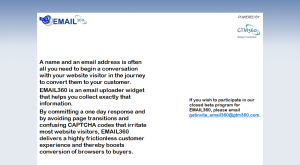Brands like Xerox, Maggi and, to a lesser extent, SAP, virtually represent entire product categories. With a dominant market share, such generic brands have not only enabled their owners earn huge revenues in the native product categories – Xerox in photocopiers (viz. getting a “xerox” copy even if you use a Canon photocopier), Maggi in noodles and SAP in ERP – but have also helped them enter new product categories through brand extensions.
If you take the example of Google – the ultimate generic brand of the past decade – it dominates Internet search so strongly that it has become a verb – you no longer search for something on the Internet, you Google it.
Surely, it’s every marketer’s dream to create a generic brand?
I’m not so sure.
Apart from search, Google owns Google Docs, Google Mail, Google Sites, Google Translate, and many other products that are unrelated to search. However, it’s not a secret that search advertising contributes to over 90% of Google’s revenues. It is tempting to ascribe this lopsided revenue distribution to the relative newness of Google’s non-search products – “when will they come out of beta?”, I hear many of you ask.
But a recent experience makes me wonder if there are more fundamental factors at play behind the negligible contribution of non-search products to Google’s topline.
 My company recently partnered with a leading computer technology college toward development of a widget, which is soon to be launched as a GTM360 marketing solution (for those interested, called EMAIL360, this email uploader widget will enable websites to collect visitor contact information in a highly frictionless manner). Since Google Gadget was one of the sources of insight regarding architecture for this widget, the research paper based on this project cited Google as a reference.
My company recently partnered with a leading computer technology college toward development of a widget, which is soon to be launched as a GTM360 marketing solution (for those interested, called EMAIL360, this email uploader widget will enable websites to collect visitor contact information in a highly frictionless manner). Since Google Gadget was one of the sources of insight regarding architecture for this widget, the research paper based on this project cited Google as a reference.
However, this reference was promptly rejected on the grounds that a research paper was expected to go beyond listing the zillions of websites that show up when you Google for ‘widget’. The examiners wanted a reference from a company that had a strong presence in widgets and, because Google only meant search to them, it didn’t qualify when it came to widgets.
This illustrates the challenge that Google faces while trying to gain mindshare in product categories outside Internet search. How well Google overcomes this challenge might determine when its non search products will make a significant contribution to its revenues – if ever.
The story doesn’t end there: When presented with a screenshot of the EMAIL360 landing page from GTM360’s website, the college’s brass accepted GTM360 as a fitting reference for widgets!
When someone rejects a reference to Google and accepts one from GTM360 in its place, you know there’s a big downside of being a generic brand!
Either the reference citation was incorrect (i.e. generically mentioned Google rather than citing the actual product and/or Google’s own published research related to Google Gadgets), or, this reflects somewhat poorly on the referees. Google’s research staff is very well respected in the Computer Science field and outside of academia is one of the largest employers of CS PhDs. For the referees to only regard Google as a search engine shows a lack of awareness of the current state of the art.
Jomwins
The Downside Of Generic Brands « Talk of Many Things